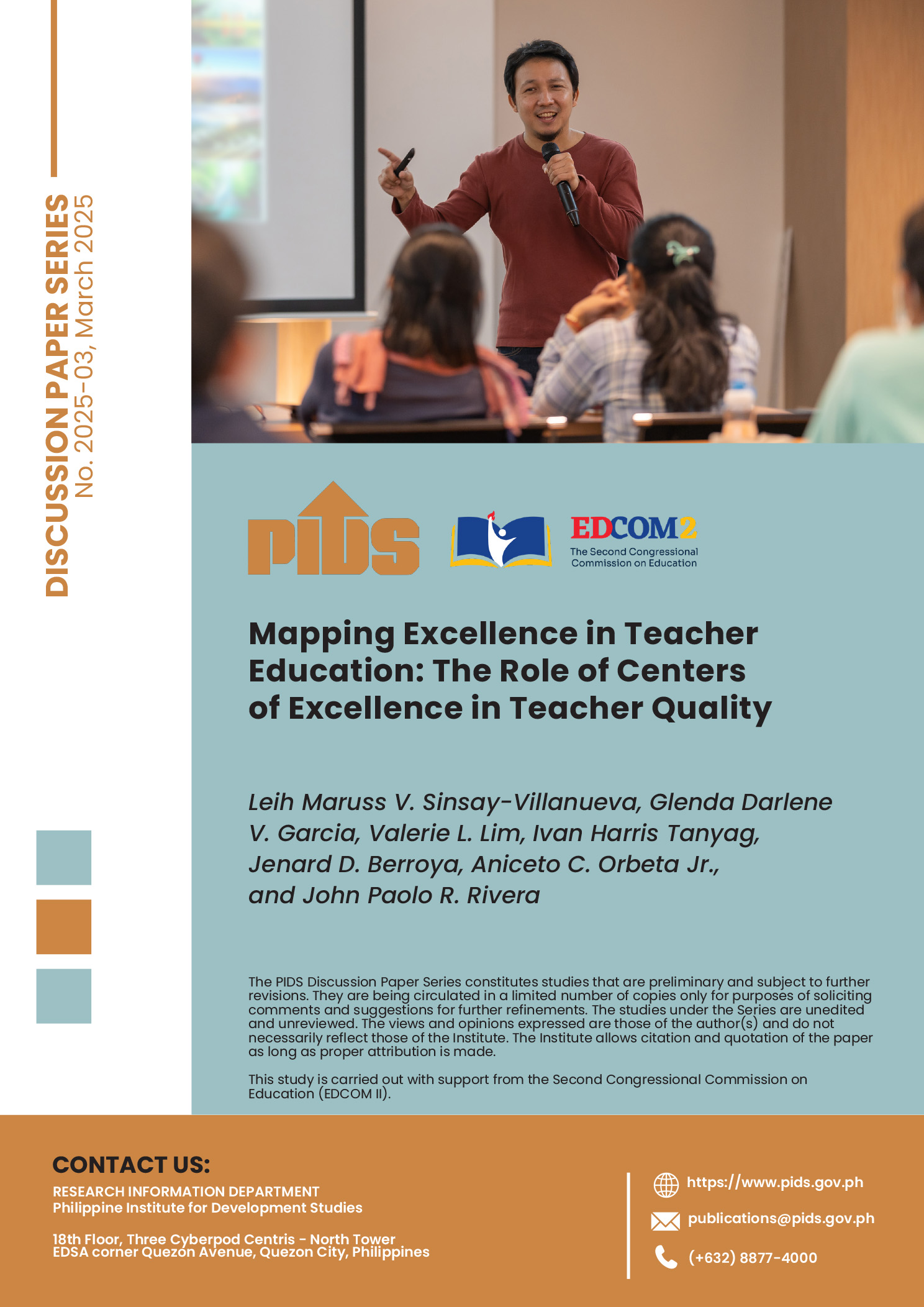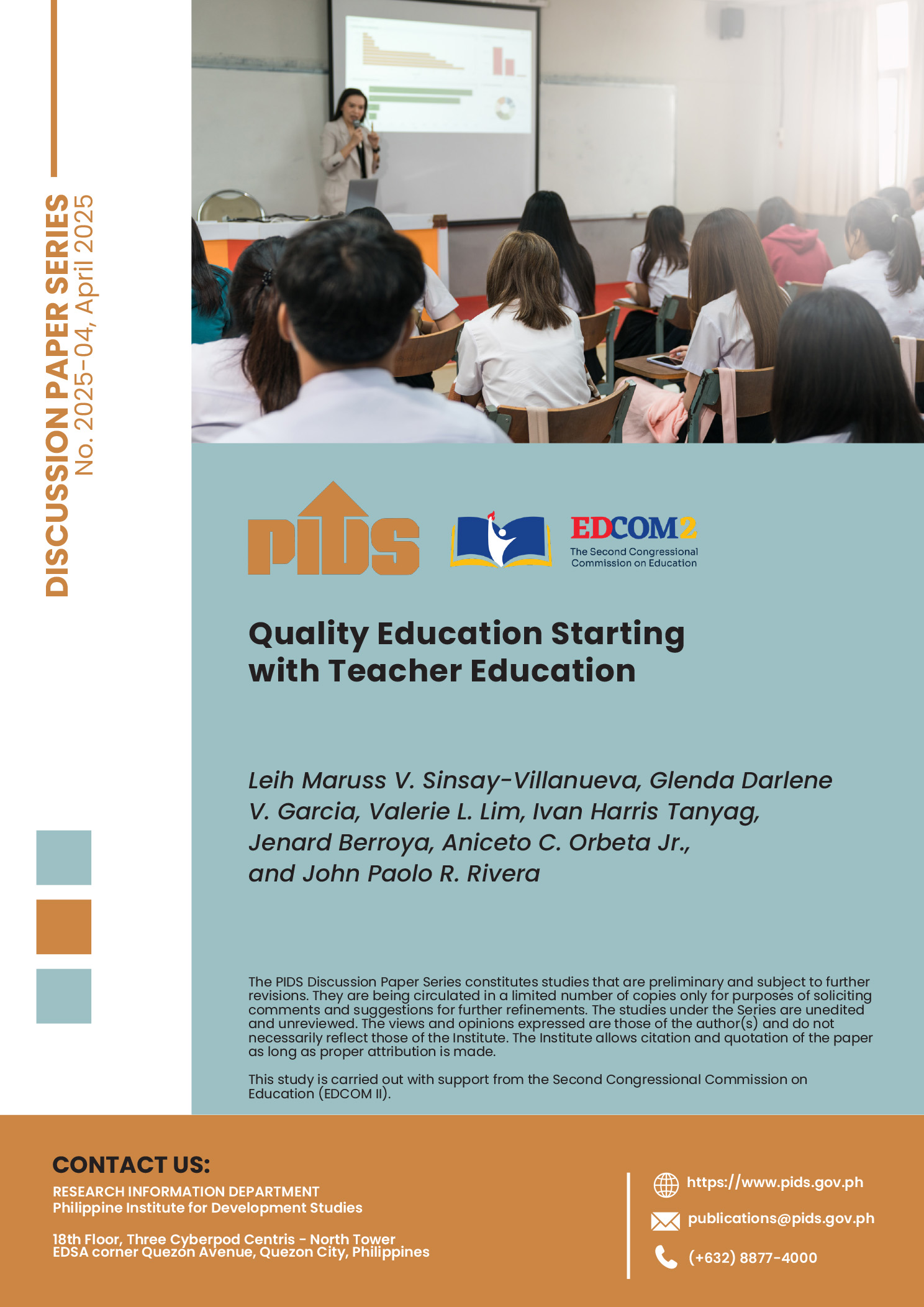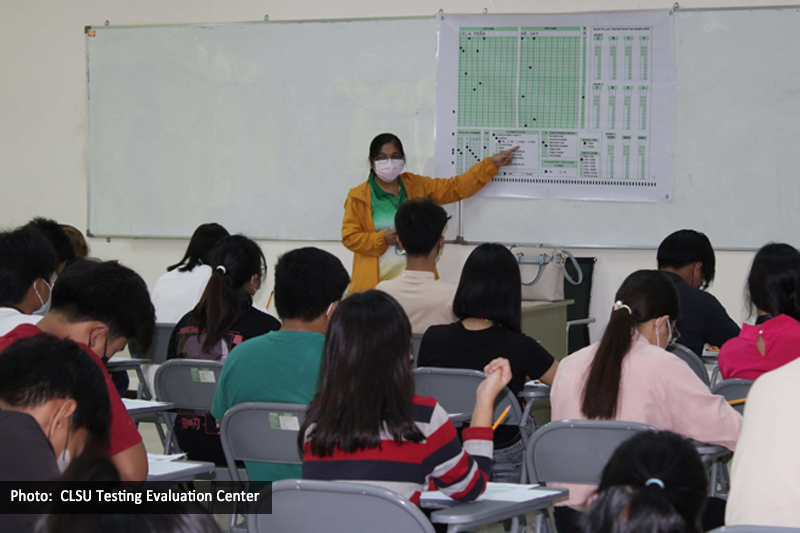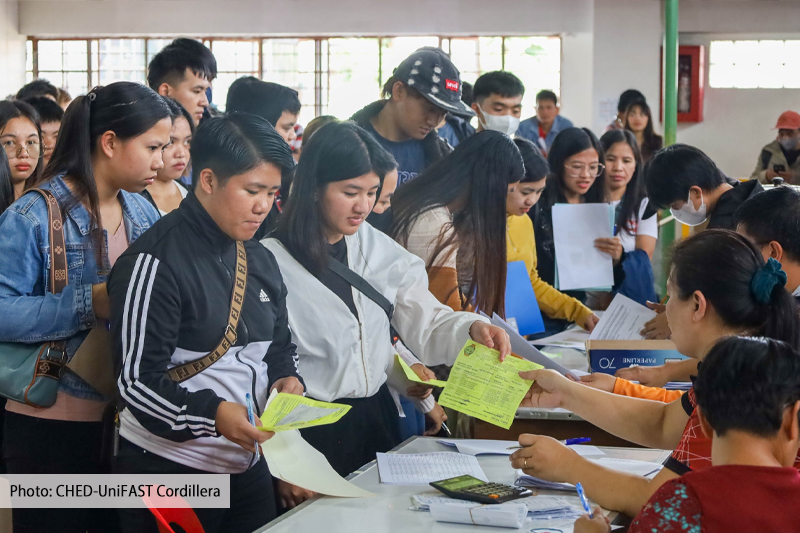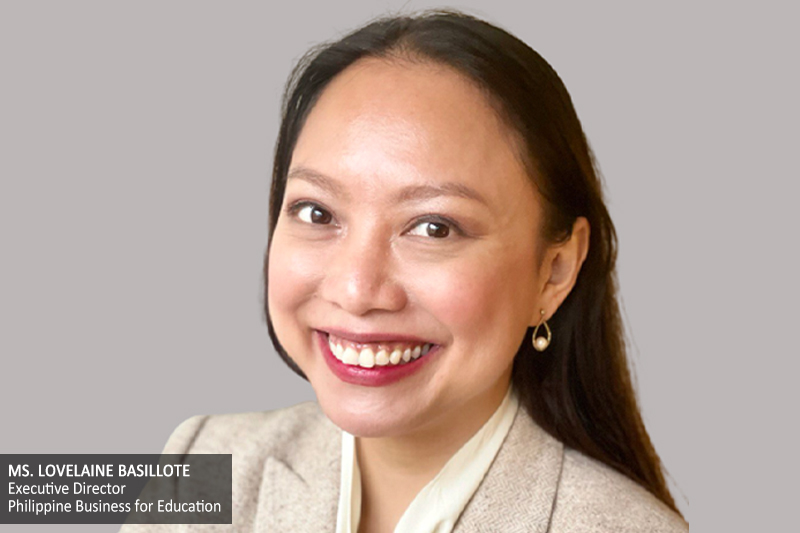
Data sharing among stakeholders is crucial to understand the career and educational aspirations of K to 12 graduates and employers’ expectations of them.
This was according to Executive Director Lovelaine B. Basillote of the Philippine Business for Education (PBEd) during a webinar recently organized by state think tank Philippine Institute for Development Studies titled “Senior High School Graduates Prospects and Challenges in the Labor Market”. PBEd is a nonprofit organization founded in 2006 by the country’s top chief executive officers in response to the need for greater education and economy alignment.
“It’s worthwhile to have more data on post-graduation outcomes and information on barriers that hinder the graduates from actualizing their aspirations,” she said.
Basillote noted that whenever there are shocks (e.g., COVID-19 pandemic), students would put their education on hold to work and help their families.
“It would be good to look at factors that could keep students in school and truly benefit from their learning…[Also], it would be good to know college enrolment numbers and whether K to 12 graduates actually followed through on what they wanted,” she said.
She also stressed the need to understand the expectations of employers from K to 12 graduates.
“There are a lot of unemployed college graduates. Some are more experienced but may not be college degree holders. Others were laid off during this pandemic. We need to know what kind of labor market K to 12 graduates are entering into and [if] they are being squeezed out of the labor market because they cannot compete in terms of credentials and experience,” Basillote said.
The PBEd official also emphasized the importance of collaboration between the K to 12 system and higher education, especially in improving college and post-secondary levels.
Furthermore, Basillote highlighted the need to address information asymmetry among key players, improve the matching between SHS track and immersions/on-the-job-trainings, and create platforms for interaction.
To shed light on K to 12 issues and resolve information gaps on SHS, PBEd maintains a robust information campaign and continues to tap the media. In 2019, they were able to reach 196 companies through their advocacy efforts.
Basillote also shared that they conducted a study in 2018 with over 140 companies in various sectors to see if SHS graduates could meet the competency requirement of firms. “We saw that 93 percent of competencies of SHS graduates met the competencies that companies required for their entry-level positions,” she said.
She also noted that through their efforts, they were able to “increase the readiness of companies to hire”. Based on their survey in 2017, 1 out of 5 companies expressed readiness to recruit K to 12 graduates. This improved in 2019 with 3 out of 5 companies expressing readiness to hire SHS graduates.
Basillote added that they “were able to open immersion and employment positions for K to 12 graduates” and that hiring policies in firms have been adjusted to accommodate these graduates.
This year, they engaged over 14 companies and organizations to participate in career pathway workshops and write shops.
PBEd also forged partnerships with the Department of Education, Technical Education and Skills Development Authority, and the University of the Philippines Open University to participate in the development and implementation of training programs. ###
You may watch the webinar at https://www.facebook.com/PIDS.PH/videos/900130727210328. For more videos of PIDS events, go to https://www.pids.gov.ph/videos.
This was according to Executive Director Lovelaine B. Basillote of the Philippine Business for Education (PBEd) during a webinar recently organized by state think tank Philippine Institute for Development Studies titled “Senior High School Graduates Prospects and Challenges in the Labor Market”. PBEd is a nonprofit organization founded in 2006 by the country’s top chief executive officers in response to the need for greater education and economy alignment.
“It’s worthwhile to have more data on post-graduation outcomes and information on barriers that hinder the graduates from actualizing their aspirations,” she said.
Basillote noted that whenever there are shocks (e.g., COVID-19 pandemic), students would put their education on hold to work and help their families.
“It would be good to look at factors that could keep students in school and truly benefit from their learning…[Also], it would be good to know college enrolment numbers and whether K to 12 graduates actually followed through on what they wanted,” she said.
She also stressed the need to understand the expectations of employers from K to 12 graduates.
“There are a lot of unemployed college graduates. Some are more experienced but may not be college degree holders. Others were laid off during this pandemic. We need to know what kind of labor market K to 12 graduates are entering into and [if] they are being squeezed out of the labor market because they cannot compete in terms of credentials and experience,” Basillote said.
The PBEd official also emphasized the importance of collaboration between the K to 12 system and higher education, especially in improving college and post-secondary levels.
Furthermore, Basillote highlighted the need to address information asymmetry among key players, improve the matching between SHS track and immersions/on-the-job-trainings, and create platforms for interaction.
To shed light on K to 12 issues and resolve information gaps on SHS, PBEd maintains a robust information campaign and continues to tap the media. In 2019, they were able to reach 196 companies through their advocacy efforts.
Basillote also shared that they conducted a study in 2018 with over 140 companies in various sectors to see if SHS graduates could meet the competency requirement of firms. “We saw that 93 percent of competencies of SHS graduates met the competencies that companies required for their entry-level positions,” she said.
She also noted that through their efforts, they were able to “increase the readiness of companies to hire”. Based on their survey in 2017, 1 out of 5 companies expressed readiness to recruit K to 12 graduates. This improved in 2019 with 3 out of 5 companies expressing readiness to hire SHS graduates.
Basillote added that they “were able to open immersion and employment positions for K to 12 graduates” and that hiring policies in firms have been adjusted to accommodate these graduates.
This year, they engaged over 14 companies and organizations to participate in career pathway workshops and write shops.
PBEd also forged partnerships with the Department of Education, Technical Education and Skills Development Authority, and the University of the Philippines Open University to participate in the development and implementation of training programs. ###
You may watch the webinar at https://www.facebook.com/PIDS.PH/videos/900130727210328. For more videos of PIDS events, go to https://www.pids.gov.ph/videos.


